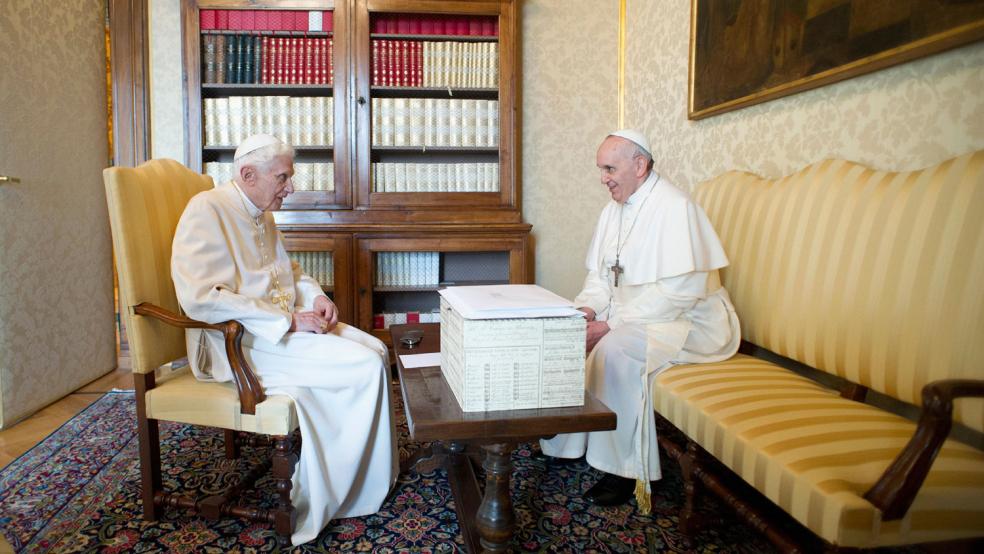George: I see that Pope Francis has touched off a debate on Jesus’s economic teachings, with noted theologian Rush Limbaugh calling the pontiff’s apostolic exhortation “pure Marxism” and Tea Party activist Jonathon Moseley responding that the pope had it wrong and Jesus is a capitalist, “weeping in heaven hearing Christians espouse a socialist philosophy.”
Joe: The Tea Party guy was right. It happens. Jesus was a capitalist. Isn’t it obvious?
George: Why in the world would you think that?
Joe: The parable of the talents. The master gives money to three stewards. The two stewards who double their money please the master. The one who puts his talent in the ground—under the mattress in modern terms, or maybe giving it to the Democratic Party—gets chewed out by the master. Jesus is urging us here to invest. Anybody telling a story with the good guys getting a 100 percent return on their money is talking policy.
George: Hardly. Jesus said: “If you would be perfect, go, sell what you possess and give to the poor, and you will have treasure in heaven, and come, follow me.” This doesn’t exactly sound like a good investment strategy. If you follow his advice, you would logically have no money to invest.
Joe: You forgot the “if you would be perfect” part. Most of us don’t want to be perfect, thank the Lord. We just want a decent return on our money. Maybe 6 percent. Two out of three stewards in that parable can’t be wrong. 100 percent return! I hope Jesus was right about that.
George: You are determined to miss the point. Jesus said it’s easier for a camel to get through the eye of a needle than for a rich man to get to heaven. He explicitly condemned the pursuit of wealth, and criticized the rich over and over. If half the Christians in America believed that, we could turn Wall Street and the whole bottom third of Manhattan back into farmland. How can you turn him into a model capitalist, piling up as much money as possible?
Joe: He said we must share and help the poor, but he didn’t say we need a collectivist state to do it. Everybody tries to invent a new Jesus who agrees with their politics. Creators of the new lefty Jesus run from Hugo Chavez (“Jesus was the first socialist”) to Notre Dame theology professor Candida Moss (“Jesus was not a free-market person”). Give it a rest. As far as we know, Jesus didn’t announce an economic policy.
George: Well, Pope Francis just did, or almost did. That was a withering attack on late capitalism, couched in the language of the left, like the term “trickle-down economics.” Nothing in there about God favoring deregulation, tax cuts, Ayn Rand or a low minimum wage.
Joe: Umpteen critics have pointed out that the pope’s new criticism isn’t very different from traditional Catholic social thought. The pope wants a lot more attention to the poor. We can do that without expanding the state and having the government impose redistribution. Jesus appealed to individuals to help, not to Caesar and the state.
George: But as the pope said, enormous amounts of money are piling up at the top of our economic system and little is getting to the poor. How can individuals fix that on their own?
Joe: Hmm. Let’s discuss that next time.
John Leo is a Senior Fellow at The Manhattan Institute and the Editor of Minding the Campus.
Top Reads from The Fiscal Times:



